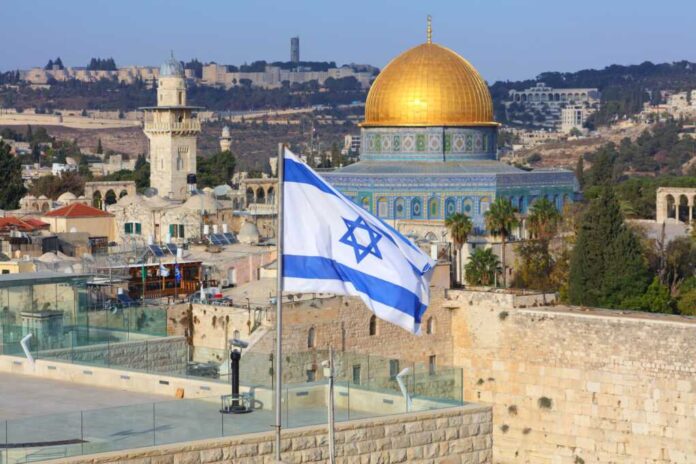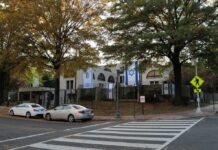
Israeli ultranationalists marching through East Jerusalem chanted “Death to Arabs” and stormed a UN compound, revealing a growing normalization of extremist rhetoric within Israel’s political mainstream.
At a Glance
- Israeli nationalists chanted “Death to Arabs” during Jerusalem Day marches
- Protesters invaded a UN compound in East Jerusalem alongside an Israeli MP
- National Security Minister Ben-Gvir visited the Temple Mount, claiming prayer rights
- Palestinian businesses shuttered in anticipation of violence and harassment
- Previous marches have sparked deadly conflicts, including a war in Gaza
Extremism in Plain Sight
Jerusalem Day, intended by many Israelis to commemorate the reunification of Jerusalem after the 1967 war, has once again become a platform for extremist provocation. On May 26, thousands of ultranationalist marchers—many bused in from settlements—stormed through Muslim neighborhoods in East Jerusalem, loudly chanting slogans like “Death to Arabs” and “May your village burn.”
For Palestinian residents, the event was less a celebration than a direct threat. Many shops closed early, not under military order, but out of fear of harassment and violence. Israeli police were deployed across the city in large numbers, but largely allowed the march to proceed despite its incendiary tone.
Watch a report: Ultranationalists March Through East Jerusalem
Government Emboldenment
The presence of senior Israeli officials at the center of this unrest has drawn sharp criticism. Itamar Ben-Gvir, Israel’s National Security Minister, made a high-profile visit to the contested Temple Mount and claimed that Jews could now pray openly at the site—a direct contradiction to Israel’s stated policy preserving the religious status quo. “Today, thank God, it is possible to pray on the Temple Mount,” he declared, despite official denials from the prime minister’s office.
Further escalating tensions, a group including an Israeli member of parliament stormed a United Nations Relief and Works Agency (UNRWA) compound in East Jerusalem, a move condemned internationally but largely overlooked in domestic political discourse. The optics of government-aligned figures attacking international institutions have deepened concerns over democratic backsliding and rising intolerance within Israeli politics.
Repeating a Violent Pattern
The annual march has a history of sparking violence. In 2021, similar events triggered an 11-day conflict in Gaza that left hundreds dead and thousands wounded. Despite this history, authorities continue to permit the route through densely populated Palestinian areas, where many see it as an intentional act of intimidation.
Though many Israelis observe Jerusalem Day peacefully, the visible dominance of ultranationalist voices—backed by figures like Ben-Gvir—casts a long shadow over the holiday. The chants, the threats, and the forced closures are not isolated incidents; they are symptoms of a political climate in which extremism no longer lurks in the margins but marches proudly through the streets.
Until Israeli leadership decisively condemns and curtails these provocations, the city’s fault lines will only deepen—turning sacred commemoration into a rehearsal for further conflict.





























